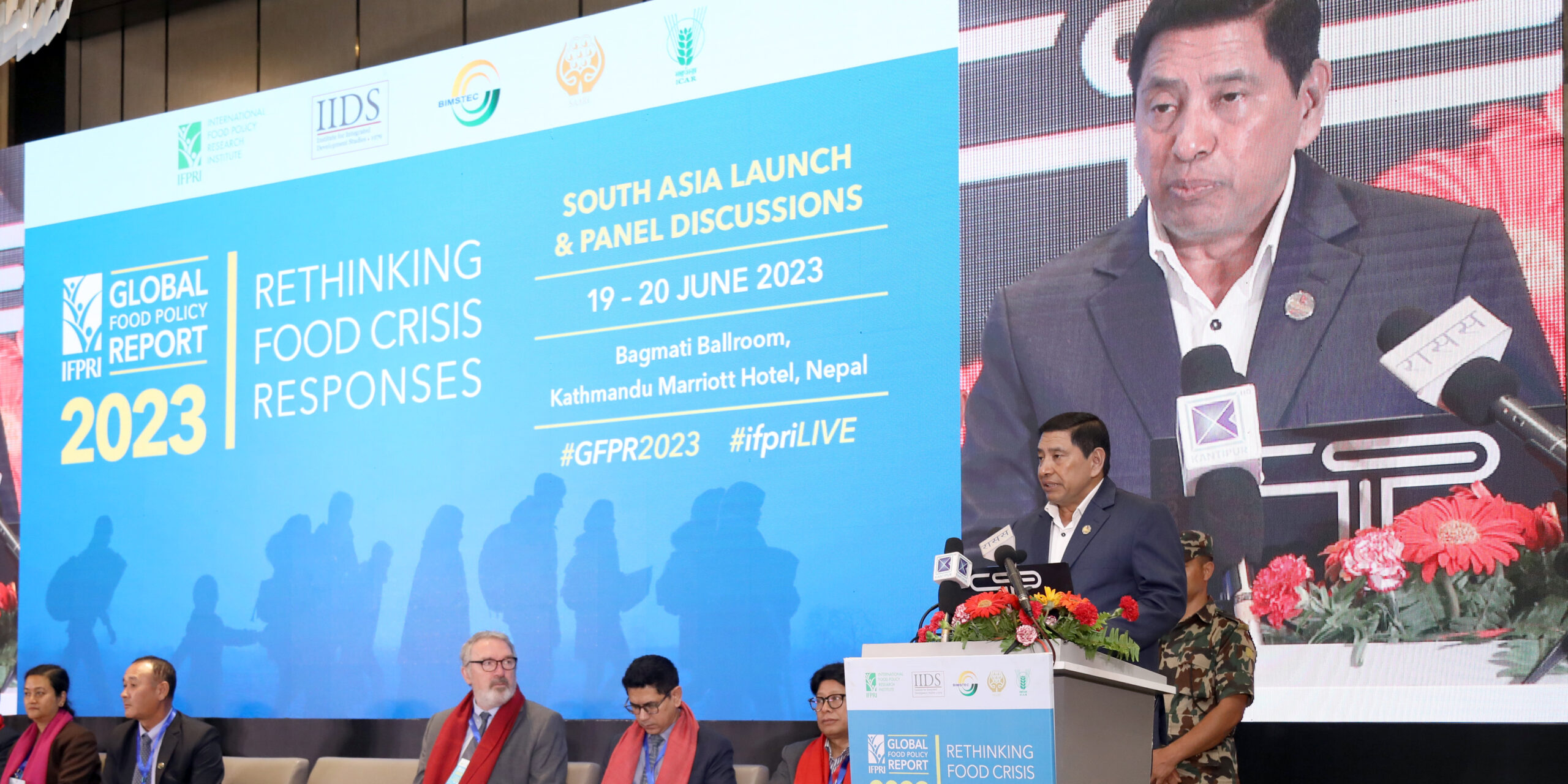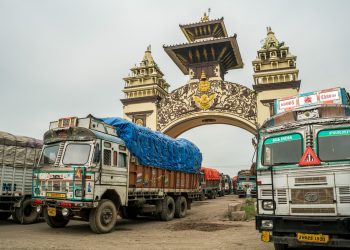KATHMANDU: Food insecurity and undernourishment are deepening lately in South Asia including Nepal, according to the Global Food Policy Report-2023 prepared by the International Food Policy Research Institute.
Deputy Prime Minister and Home Minister of Nepal Narayan Kaji Shrestha unveiled the report amid a function here today.
According to the report, in Afghanistan, the highest 30 percent of people suffered from undernourishment between 2019 and 2021 followed by 17 percent in Pakistan, 16 percent in India, 12 percent in Bangladesh, six percent in Nepal, and four percent in Sri Lanka.
Likewise, during the same period, Afghanistan recorded the highest around 23 percent of severe food insecurity, Nepal at around 13 percent, Bangladesh at approximately 11 percent, Pakistan at around eight percent, and Sri Lanka at approximately two percent.
From 2017 to 2019, Nepal witnessed slightly more than 10 percent of severe food insecurity.
Similarly, the deterioration in economic conditions that took place with the pandemic led to a substantial increase in poverty, with 48-59 million people estimated to be newly poor in 2021, particularly in Afghanistan, Pakistan, and Sri Lanka.
The COVID-19 pandemic, the Russia-Ukraine War, implications of various natural disasters, the energy crisis, the global rise in prices of food, petroleum products, and fertilizer, and political instability have been mentioned as contributors to increasing food insecurity in entire South Asia.
“The recovery and development of food systems in South Asia face multiple challenges. Although spillover effects from the Russia-Ukraine war have not been large, South Asia has been affected by the global rise in food, fuel, and fertilizer prices. Food prices have risen sharply, contributing to food insecurity. In September 2022, the year-on-year consumer inflation rate for food was 66 percent in Sri Lanka, 36 percent in Pakistan, and about 8 percent in India, Bangladesh, and Nepal,” the report states.
In 2022, Afghanistan, Bangladesh, India, and Pakistan banned the exports of foodstuffs mainly rice, wheat, and sugar due to high inflation and food shortage.
According to the report, the inflation in Pakistan and Sri Lanka is attributed mainly to macroeconomic instability and mismanagement, especially the sharp devaluation of their currencies, and the fertilizer ban in Sri Lanka.
The report identifies climate change as one of the reasons behind falling agricultural production in many countries.
“Threats from climate change loom especially large for many countries, especially those in Africa. Climate change is rapidly intensifying, increasing pressure on food systems, rural livelihoods, and ecosystems more broadly. While some places may benefit from a longer growing season amid rising temperatures, changing weather patterns and advancing desertification have reduced the average growth in agricultural productivity by as much as 21 percent since 1961.”
Disruption in the food supply chain and unmanaged migrations are noted as also the reasons for increasing food insecurity.
The documents emphasize on better prediction, preparation, and resilience building to make future crises less devastating.
RSS









Comment